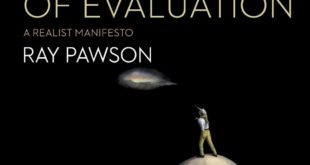Social scientists pursue a variety of different purposes such as predicting events of interest, explaining individual events or general phenomena, and controlling outcomes for policy. It is interesting to note that the language of“cause” is employed in all these contexts … What kind of causal hypothesis should be investigated (and, in tandem, what kind of evidence should be sought) therefore is to be determined on the basis of purpose pursued in the given context. For certain...
Read More »The randomization tools economists use
The randomization tools economists use Preference-based discrimination is based on the fact that, for example, employers, customers, or colleagues have a dislike for those who belong to a certain group. Such discrimination can lead to wage differences between discriminated and non-discriminated groups. However, competition can undermine these wage differences, as non-discriminatory employers will make greater profits and drive discriminatory employers out...
Read More »The difference between logic and science
The difference between logic and science .[embedded content] In mainstream economics, both logic and mathematics are used extensively. And most mainstream economists sure look upon themselves as “twice blessed.” Is there any scientific ground for that blessedness? None whatsoever! If scientific progress in economics lies in our ability to tell ‘better and better stories’ one would, of course, expect economics journals to be filled with articles...
Read More »The science of evaluation
The science of evaluation .[embedded content]
Read More »A methodological credo
What enables and yet constrains research? What is both medium and outcome of research? What do researchers reproduce without even knowing it? What is supposed to unite researchers but may divide them? What empowers researchers to speak but is never fully articulated? What is played out in the routine of research but can never be routinised? What is the responsibility of all researchers but for which none has a mandate? The answer to all of these riddles is METHODOLOGY.
Read More »The wisdom of crowds
The wisdom of crowds .[embedded content] .[embedded content] If you’d like to learn more on the issue, have a look at James Surowiecki’s The Wisdom of Crowds (Anchor Books, 2005) or Scott Page’s The Diversity Bonus (Princeton University Press, 2017).
Read More »Three pages — all it takes to change science forever
Three pages — all it takes to change science forever .[embedded content] And here is Edmund Gettier’s three pages article.
Read More »Necessary and sufficient (student stuff)
Necessary and sufficient (student stuff) .[embedded content]
Read More »Science — the need for causal explanation
Science — the need for causal explanation Many journal editors request authors to avoid causal language, and many observational researchers, trained in a scientific environment that frowns upon causality claims, spontaneously refrain from mentioning the C-word (“causal”) in their work … The proscription against the C-word is harmful to science because causal inference is a core task of science, regardless of whether the study is randomized or nonrandomized....
Read More »Mill’s methods of causal inference (student stuff)
Mill’s methods of causal inference (student stuff) .[embedded content] As we all know, R. A. Fisher was not too happy about Mill’s method of difference, since it, according to him, built on the impossible requirement of being able to compare identical units under different circumstances. Fisher instead favoured the experimental method of randomized treatment assignment. But if you cannot assign treatment randomly — as in most observational studies — there...
Read More » Heterodox
Heterodox



